28 Aug Shocking but Needed: South Korean therapies
Where the conservative methods – the known practices – fail the new creative recipes for stress release, may surprise with its efficiency. In South Korea there are numbers of practices – odd, quirky ways to distract you from the real world – that could work to reduce stress, but especially two of them, I mark as a hard core total twist, a different level of distract:’Live through the worst to value what you have’ experiences.
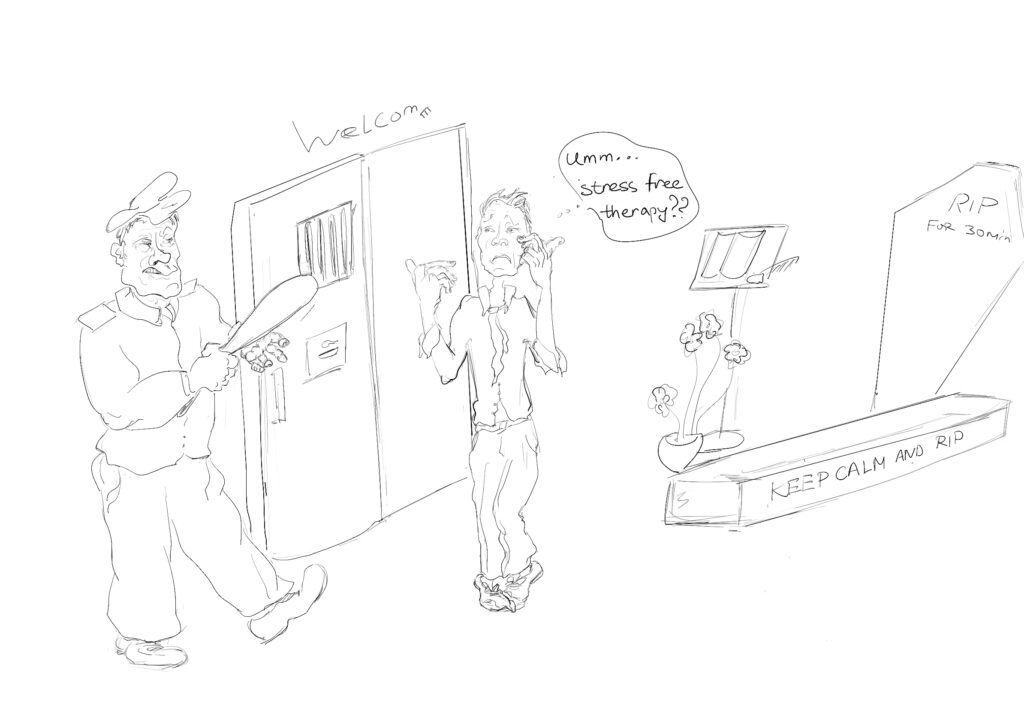
Hard to chose between this two…😄
Lock me in
First, the Jail experience. The “Prison Inside Me” project (hindustantimes.com), ahem, you won’t believe, act as an escape therapy. It’s a faux jail: Voluntarily imprisoned to be locked away from demanded social culture. You would think this is silly and this jail is not a real jail. But nevertheless, everything is set according to the real prison: cell design and attributes, clothes, schedule, rules…but, indeed you won’t come across criminal inmates and prison gangs. Oddly, a yoga mat, tea set, no bed, is also considered as a basic jail pack. Anyway, this camp already hosted more than 2,000 inmates, as it was said, who took their chance to seek for relief from South Korea’s demanding work and academic culture. Yeah, therefore, most of them are stressed office workers and students – ‘yearning to breath free'(phrase written on the liberty statue) out of the most competitive areas. This particular escape zip you in inside a steal cocoon without any tiny-tiny gadget – solidly defended from oppressive daily matters. And yes – for your next question – for this privilege every inmate pays money…So paying to be imprisoned – sounds ironic? There is a big point behind this method tho.
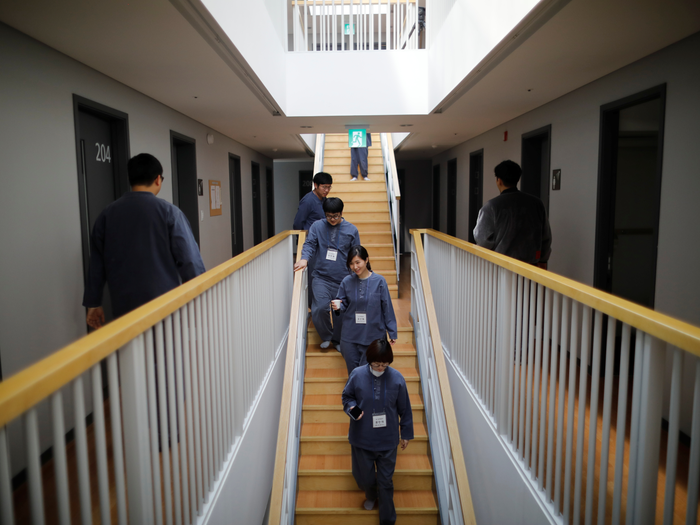
📷“Prison Inside Me”project
Mass funeral
Second, the Death experience : ‘Dying well, living well’ project. Not seeng death, but have a funeral in your honour.(happydying.com). The aka”beautiful life” training where people are going through the own funeral, including writing a note: describing what was good about them(in a third person narrative), what would they want to be forgiven for, how would they say ‘good bye’ to their loved ones, how would their funeral look like…Then after watching some family videos, they (participants) should lay down in their funeral box – coffin – where they would spend some time in the dark, in a narrow box, till the ring will go off. Glad to know that no one locks you in there (no one would touch the top or close/nail-hammer the coffins)so there is no problem to open the coffin – plus, no need to learn the arm-fist move (aka “Kill Bill” style). But surely this is not your cup of a tea if you are claustrophobic.
Prison cell or coffin?
This two therapeutic rituals helps to confront the most avoidable life experiences, death or incarceration. Here you go, if you want to sense your end or limit your freedom. I don’t think this creative ideas for stress relief was only thought through in South Korea. Definitely Japan is not left out there and this two methods would be on their list somewhere in between parading in anime dressing and the naked man festival (Hadaka Matsuri). But back to this two practices. Shocking experiences if to say nothing, but at the same time by encountering this seemingly real sessions or practices, as you wish to call it, all problems would suddenly look flat, realising that everything is temporary – we are here temporarily, and there is no guarantee you would get time “to fully appreciate the beauty of life”(noted on their website) or just enjoy the moments. Bit of philo note. Makes me to remember the “memento mori” the human scull on the desk habit in Europe (sometime from 16th A.D, Shakespeare might have brought this style): similar content with the coffin here.
Would you go for such experiences to heal your wounds? I would give it a shot, why the hell not? Even for a sake of stress-release effect comparison between these two practices. Depends how much it would cost when I get there (in South Korea); Each year they rising the cost for those therapies, due to its ‘new scale’ popularity. Otherwise, I really think it’s wonderful ideas to wake us(people) up from the big city’s routine where we daily loosing the grip on what really matters and what are we studying or working for. Of course, there are folks who would ridicule both practices, saying ‘huh this is only for wuss, man-rag kind’, but this is standard reaction from those who consciously limit themselves to express emotions, therefore, constantly ashamed of their own feelings, suppressed by fear of being judged, misunderstood, and look silly (to be rejected in the society) when challenging own emotional intelligence. This awakening therapies at least deserve to be respected as they helped many people to reconcile with their losses, reestablish or broad their values, and to find the peace in themselves.
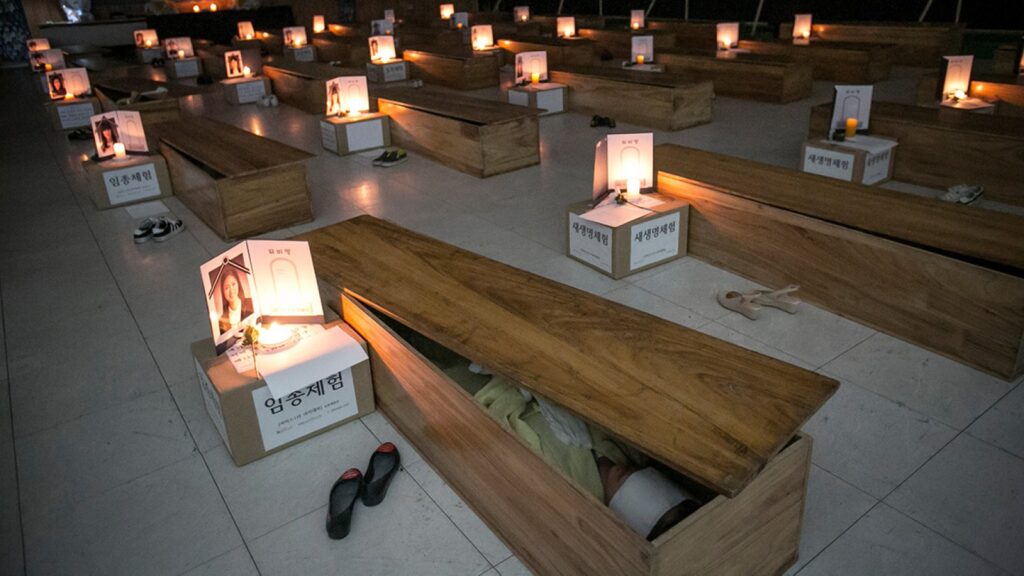
📷 ‘Dying well, living well’ session: participants laying in the closed coffins.
to continue …
Being behind the bars is not the state you would wish for yourself: loneliness, regret, fear, anxiety, misery, limited respect, hopeless, dependance – being under control, backed on loveless and lack of joy existence. Sounds sad and rough but that’s how it is at first when you imprisoned then you just get used to this life situation (based on personal experience). However, in this faux jail people don’t go through the normal ‘locked’ experience, they actually take the best sides of it, which is indefinite time for yourself where you can cope with your stress, look at your life from another angle, remember what have been forgotten, rethink what was done, what have been done, what is happening now, and what you wish to do for your future.
The ‘lock me in’ project is differ compare to the ‘rise from the dead’ or “beautiful life”(that’s how they named it in S.Korea) project. First is more focused on calming your thoughts: lose yourself in your thoughts , line up your ideas, decide on life priorities and just relax in absolute tranquility. In such condition you might get an ‘Eureka’ moment! Similar to being cast away, but here you still need to pay for you stay. The second one is more wake-up therapy: being buried alive for couple minutes, helps you to realise what is worth living for.
This two different but same turbulent experiences would make us change the way we look at things…After being jailed or being dead you kind of starting your life from scratch, or at least starting noticing something that was not given much sense before. Some participants say – “at most, the values are challenged when you going through either one”. Hardly can’t disagree with it.
Both tackle our attitude to the things we have. So as much as I see, it’s not only distracting, taking our thoughts away from non-stop duties or problems, but forcing us to look closely at our ‘life chart’ – what we put there and how much importance we should give to every aspect of that chart. Sadly there is no such thing as a standard life chart, it vary from place to place, from country to country pivot on culture, religion,.. not even mentioning personal and biological differences(nationality, race, gender, age…)

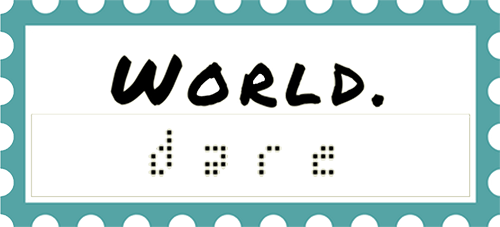
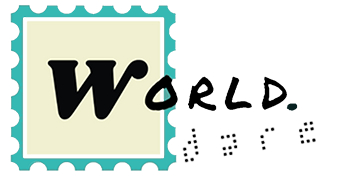
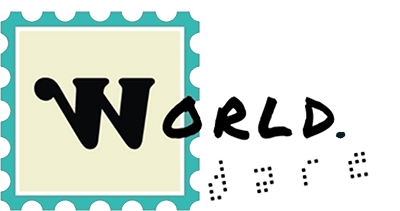

No Comments